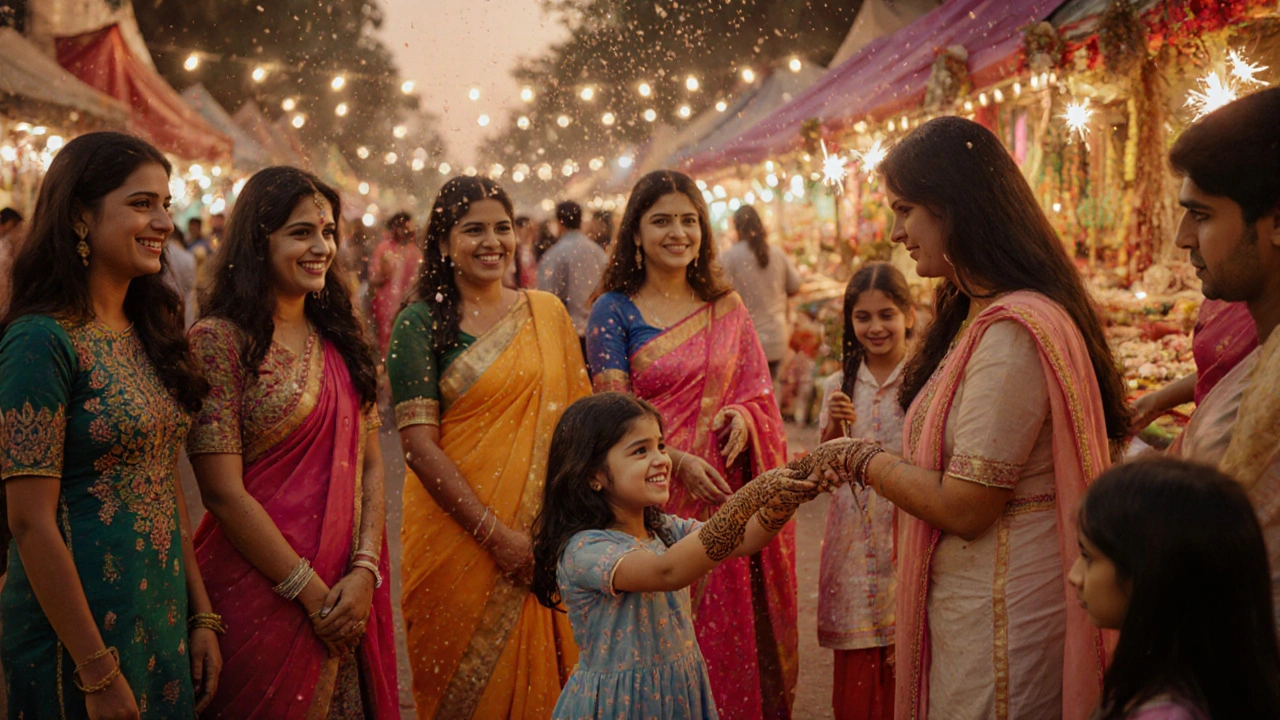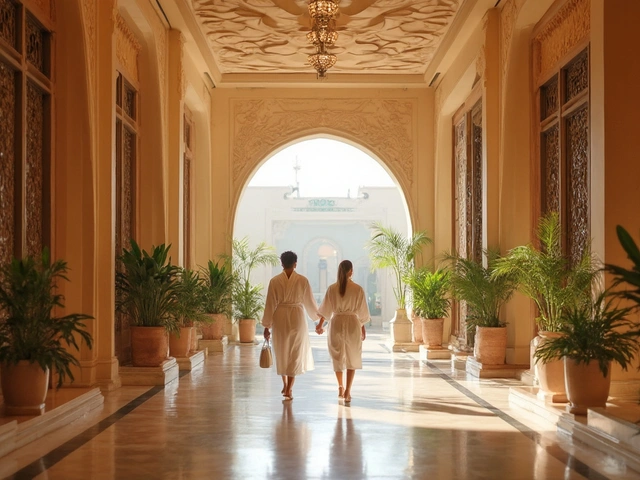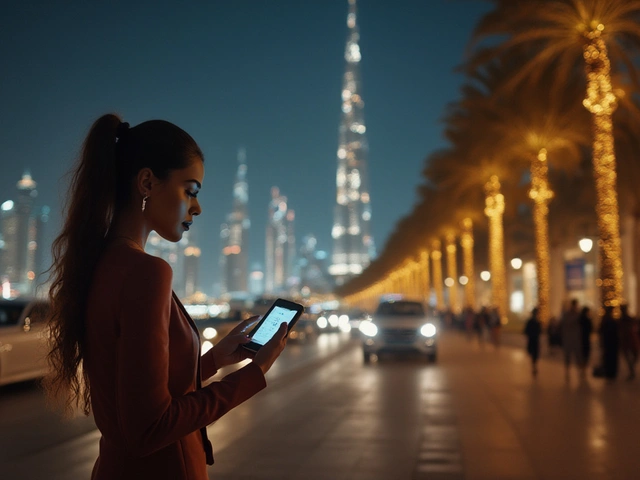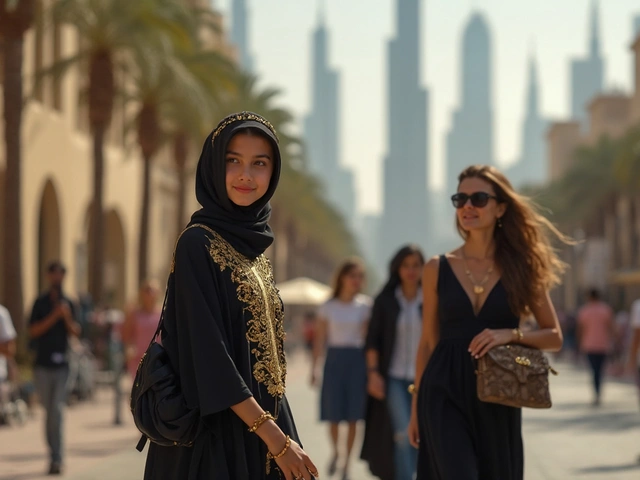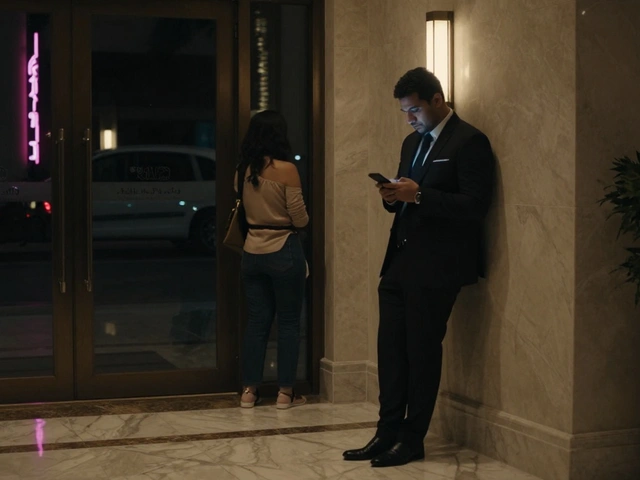When people search for "Indian girls in Dubai," they often stumble into a web of misleading images and shallow assumptions. Some see them as part of a nightlife scene. Others assume they’re all working in offices or stuck in arranged marriages. The truth? Indian women in Dubai live full, complex lives - as engineers, artists, entrepreneurs, students, mothers, and leaders. They’re not a monolith. They’re not a trend. They’re real people building lives in one of the world’s most dynamic cities.
Who Are Indian Girls in Dubai?
There are over 3.5 million Indians living in the UAE, making up nearly 30% of the total population. Of those, nearly half are women and girls - from young students arriving for university to mothers raising families in Jumeirah, professionals working in Dubai International Financial Centre, and nurses staffing hospitals across the emirate. They come from every state in India: Punjab, Kerala, Tamil Nadu, Uttar Pradesh, Maharashtra. They speak Hindi, Malayalam, Punjabi, Gujarati, and English. Some wear sarees to work. Others wear jeans and hoodies. Some pray five times a day. Others don’t pray at all. Their lives are as diverse as India itself.
Many arrived on work visas - as IT specialists, accountants, teachers, or healthcare workers. Others came on student visas to study at universities like American University in Dubai or Zayed University. A growing number run their own businesses: beauty salons, Indian grocery stores, yoga studios, or Instagram-based fashion boutiques. One woman from Jaipur started a vegan Indian meal delivery service that now serves 500 customers weekly. Another, originally from Chennai, teaches classical dance to Emirati children on weekends.
What’s Daily Life Really Like?
Life for Indian women in Dubai isn’t what you see on Instagram. It’s not all rooftop parties and luxury malls - though those exist too. Most days start early. Alarm clocks go off before sunrise for those who need to commute to work before the heat hits. Many live in shared apartments in Al Quoz or Deira, saving money to send home or invest in their future. Others live in family compounds in Arabian Ranches, where kids go to Indian international schools and weekends are spent at the local temple or community center.
Public spaces are safe, but there are rules. Dress codes in malls are relaxed, but in government buildings or religious sites, modesty matters. Headscarves aren’t required, but many choose to wear them out of respect - or habit. Public displays of affection are frowned upon. That doesn’t mean relationships are hidden; it just means they’re private. Dating happens. Marriages happen. Divorces happen. People fall in love, break up, and rebuild - just like anywhere else.
Weekends are for family. Friday mornings mean visiting the Indian supermarket for fresh coriander and paneer. Afternoons are for chai at a local café or a trip to the beach at Jumeirah. Many families host small gatherings with homemade biryani and Bollywood music playing in the background. There’s a strong sense of community. If someone’s sick, neighbors show up with soup. If someone’s struggling with paperwork, someone else knows a lawyer who’ll help for free.
Cultural Identity in a Foreign Land
Being Indian in Dubai isn’t about clinging to tradition. It’s about blending. You’ll see girls wearing kurtas with denim jackets. You’ll hear Hindi pop songs mixed with Arabic beats on Dubai Radio. You’ll find Diwali celebrations in the middle of a Dubai Mall, with fireworks and henna artists alongside Starbucks and Zara. Indian festivals are big here - not just for Indians, but for Emiratis too. Many Emirati families now join in on Holi, throwing colored powder and dancing to Bhangra.
Language is a bridge. Most Indian women in Dubai speak fluent English. Many learn basic Arabic to navigate daily life - ordering food, asking for directions, talking to school staff. Their kids grow up bilingual, switching between Hindi at home and English at school. Some even pick up Emirati Arabic slang. It’s not about losing identity. It’s about expanding it.
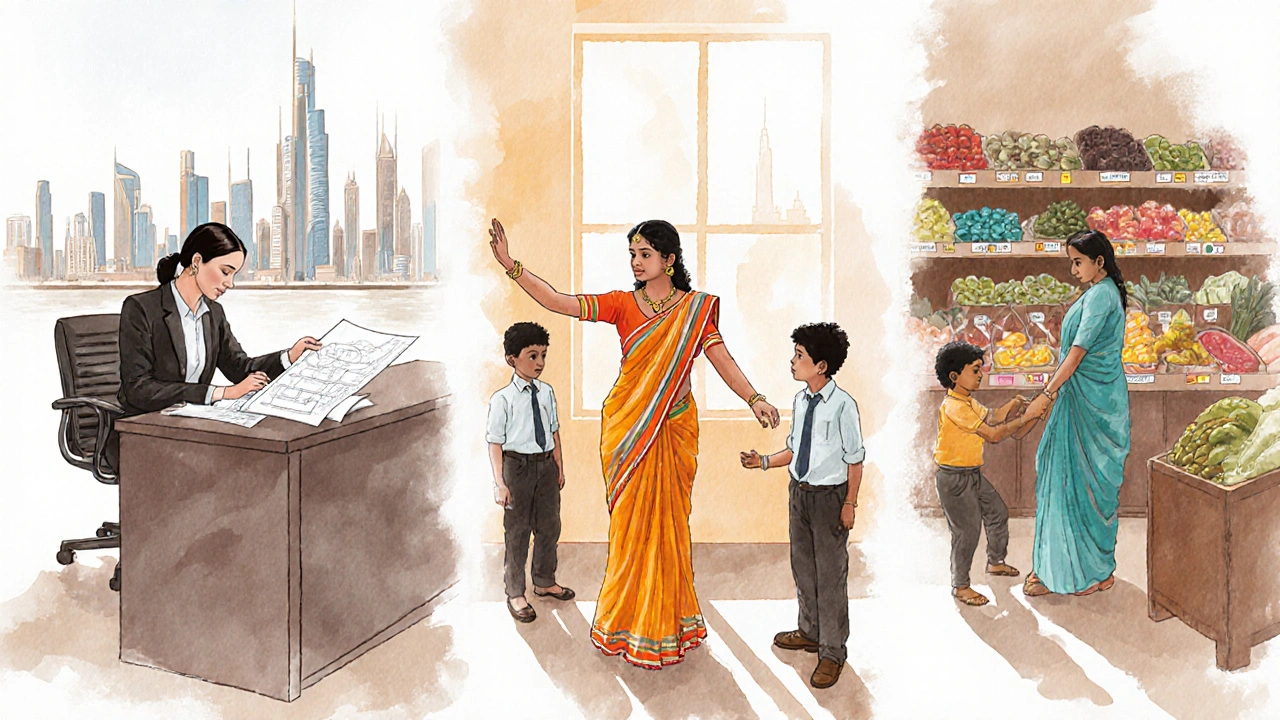
Challenges They Face
It’s not all smooth sailing. Some face discrimination - subtle, but real. A job application ignored because the name sounds "too Indian." A landlord who refuses to rent to a single woman. A coworker who assumes she’s "just a secretary." Others struggle with isolation, especially if they moved here alone without family. The climate is harsh. The work culture can be demanding. The visa system ties them to their employer - making it hard to leave a bad situation.
Legal issues can be tricky. If a marriage breaks down, custody laws favor the father under UAE family law. Women often have to navigate this alone, without the support systems they had back home. Mental health is still stigmatized. Many suffer in silence, afraid to speak up.
But here’s the thing: they don’t give up. They form support groups. They start WhatsApp communities. They create online forums for Indian women in Dubai. There are now over 200 private groups just for Indian women - sharing job leads, legal advice, parenting tips, and even yoga classes. One group, called "Desi Sisters in Dubai," has helped over 3,000 women find housing, jobs, or emotional support.
Success Stories You Won’t See on Instagram
Meet Priya. She came to Dubai at 22 with a degree in mechanical engineering and $300 in her bank account. Five years later, she’s a senior project manager at a renewable energy firm, owns a small apartment in Dubai Marina, and mentors three other Indian women starting out. She doesn’t post about it. She doesn’t need to.
Then there’s Ayesha, a single mom from Lucknow who works as a nurse. She raised her daughter alone, sent her to a top international school, and now runs a home-based tutoring center for other Indian kids struggling with math. She doesn’t have a fancy title. But her daughter just got into MIT.
And there’s Neha, who left a corporate job in Bangalore to open a boutique selling handwoven kurtas made by women in rural Odisha. Her business now exports to London and Paris. She employs six Indian women in Dubai as designers and sales reps. Her Instagram page has 12,000 followers - but she doesn’t care about likes. She cares about fair wages.
These aren’t outliers. They’re the norm.
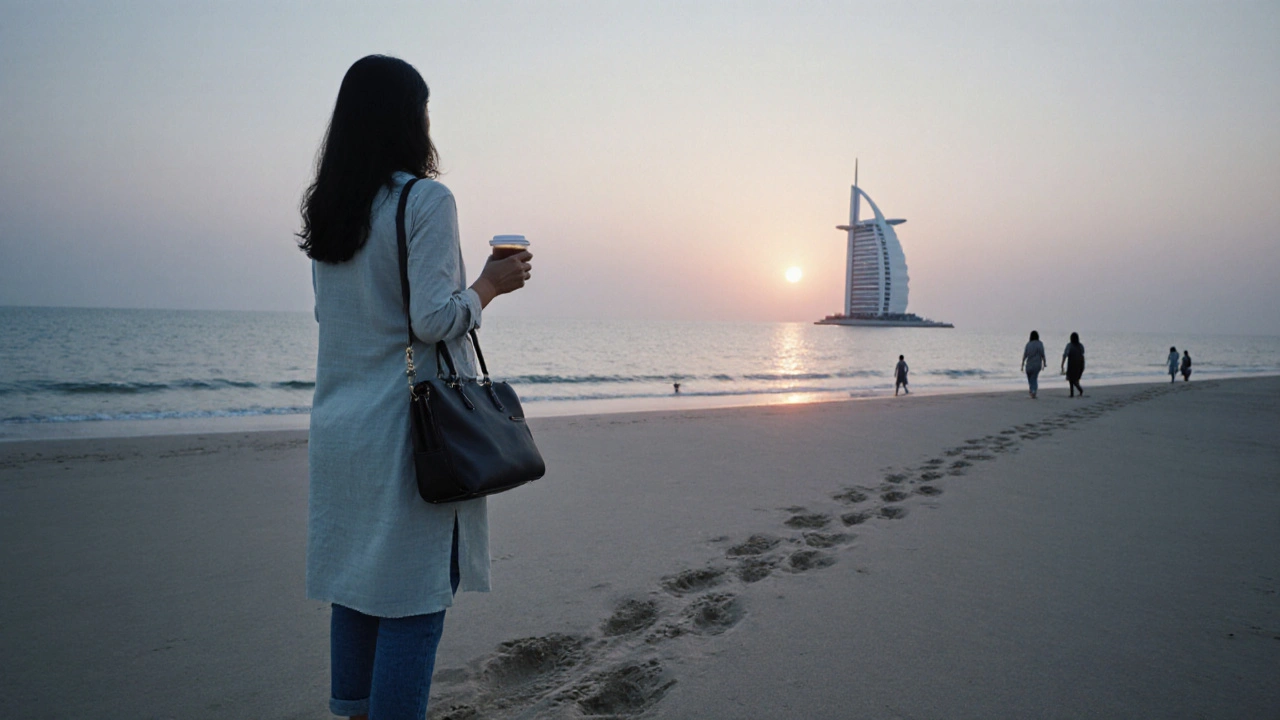
Where to Find Them - and How to Respect Their Space
If you’re looking to meet Indian women in Dubai, don’t go to bars or clubs. Don’t scroll through Instagram hashtags like #dubaigirls or #indianescort. Those aren’t real connections. They’re ads.
Go to the Indian Cultural Center in Al Quoz. Attend a Diwali fair at Dubai Festival City. Join a book club at the Dubai Public Library. Volunteer at a local charity that helps migrant workers. Take a cooking class at a home-based kitchen run by an Indian woman. These are real spaces where real people gather.
Respect their boundaries. Don’t assume they’re available. Don’t ask about their relationship status. Don’t make comments about their clothes. Don’t try to "save" them. They’re not waiting for you to rescue them. They’re already rescuing themselves - and each other.
The Bigger Picture
Indian women in Dubai aren’t just visitors. They’re builders. They’re teachers. They’re innovators. They’re the backbone of a city that runs on their labor, their creativity, and their resilience. They pay taxes. They raise children who become doctors and engineers. They start businesses that employ locals and expats alike. They keep the culture alive - not by resisting change, but by shaping it.
Next time you hear "Indian girls in Dubai," think beyond the stereotype. Think of the woman who wakes up at 5 a.m. to study for her CPA exam. The one who teaches her son to read Hindi before English. The one who fights for equal pay in a male-dominated industry. The one who sends money home every month so her sister can go to college.
They’re not a trend. They’re not a photo op. They’re not a fantasy.
They’re just living.
Are Indian girls in Dubai safe?
Yes, Dubai is one of the safest cities in the world for women, regardless of nationality. The crime rate is extremely low, and public spaces are well-lit and monitored. Indian women live, work, and travel here without fear. That said, cultural norms still apply - public displays of affection are discouraged, and dressing modestly in certain areas is respectful. Most Indian women feel safer here than in many cities back home.
Do Indian girls in Dubai work in the service industry?
Some do - as nurses, teachers, retail staff, or hotel workers. But many more work in high-skill fields: engineering, finance, IT, law, medicine, architecture, and entrepreneurship. The idea that Indian women are only in low-wage jobs is outdated. Over 40% of Indian women in Dubai hold professional or managerial roles, according to UAE labor statistics from 2024.
Can Indian girls live alone in Dubai?
Absolutely. Thousands of Indian women live alone in Dubai - in apartments, studios, and shared housing. Many are students, professionals, or single mothers. The city is designed for independent living, with 24/7 public transport, secure buildings, and strong legal protections. Landlords cannot legally deny housing based on gender. Many women choose to live alone for freedom, career growth, or personal reasons.
Do Indian girls in Dubai date Emirati men?
Some do. Relationships between Indian women and Emirati men happen, though they’re not common due to cultural and legal differences. Marriage between a non-Muslim woman and a Muslim man requires the woman to convert to Islam under UAE law. Many couples choose to stay together without marrying, or they move abroad. These relationships are private and rarely discussed publicly.
What do Indian girls in Dubai do for fun?
They go to the beach, watch Bollywood movies, shop at malls, attend yoga classes, join book clubs, cook together, travel on weekends to Oman or Abu Dhabi, and host potlucks. Many volunteer at animal shelters or teach free English classes to other expats. Social life is quiet but meaningful - centered around community, not nightlife.
